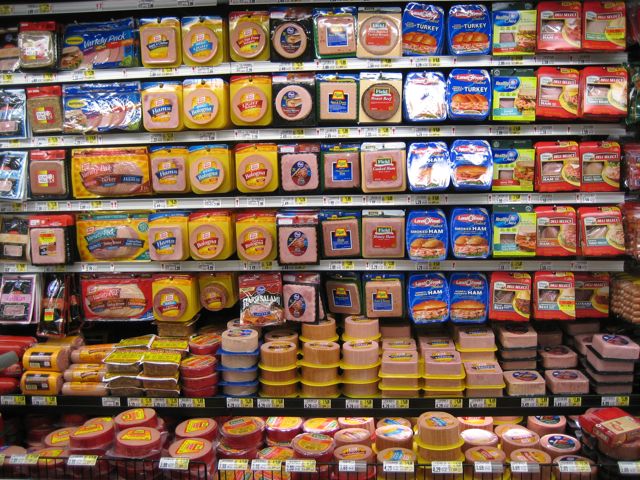Salami, sausage, ham and bacon — the latest study by the International Agency for Research on Cancer (IARC) has found a strong link between processed meat and bowel cancer, as well as evidence for probability of such a link also between red meat and bowel cancer.
IARC, which is the World Health Organisation’s cancer research body, classifies compounds’ carcinogenic properties on a scale of decreasing certainty. In group 1 are agents that are definitely carcinogenic to humans; in 2A those that are probably carcinogenic to humans; 2B includes those that are possibly carcinogenic to humans; 3, includes not classifiable agents; and in group 4, those that are probably not carcinogenic to humans.
Processed meat “refers to meat that has been transformed through salting, curing, fermentation, smoking, or other processes to enhance flavour or improve preservation”, includes things like salami, sausage, ham and bacon, and has been ranked in group 1 by IARC, in the same category as tobacco and alcohol.
According to the study, for every 50 grams of processed meat consumed daily, the risk of colorectal cancer increases by 18 per cent.
In their press release Dr Kurt Straif, Head of the IARC Monographs Programme, said: “For an individual, the risk of developing colorectal cancer because of their consumption of processed meat remains small, but this risk increases with the amount of meat consumed. In view of the large number of people who consume processed meat, the global impact on cancer incidence is of public health importance.”
Although the study scores red meat better than processed meat, its 2A classification means it is now on par with glyphosate, a herbicide contained in products such as Monsanto’s Round-Up, the probably carcinogenic properties of which made headlines earlier in the year. However according to IARC, eating red meat is not just linked to bowel but to pancreatic and prostate cancer too.
Meat industry groups and the research institutes they fund reject that eating meat is on par with smoking or other lifestyle causes to cancer, such as alcohol consumption, obesity and lack of exercise. Nutritionists also argue that the benefits of eating red meat regularly, in combination with plenty of fruit, fibre and exercise, counteract the risk to colorectal cancer.
Yet the debate on the health effects of processed and red meat is nothing new, and neither are the recommendations by health practitioners to limit the amounts consumed to reduce the risk of obesity, diabetes, and heart disease – although the IARC study falls short of setting a safe recommended amount for red meat.
Environmentalists have too been highlighting for sometime how an increasingly intensive meat industry – responsible for much deforestation, carbon emissions, reliant on fossil fuels and addicted to antibiotics, is not a sustainable source of food for people and planet.
Even if one doesn’t accept the latest findings by IARC, it seems there are many reasons to limit our processed and red meat intake. Whether a healthy heart or a healthy planet is your thing, good old moderation may well just do the trick.
By Annalisa Dorigo
